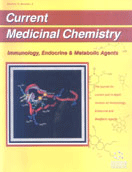Abstract
Cardiovascular diseases are the leading cause of morbidity, disability and death worldwide. The importance of the burden of cardiovascular diseases varies geographically and evolves simultaneously to the change in societies. The changes in patterns of diseases and their interaction with socio-economic transformation have been termed “epidemiological transition”. The present paper presents public health perspective of the evolution of cardiovascular risk profile associated to high dietary salt consumption in both developed and developing countries. The model of primary prevention of hypertension through non-pharmacological methods is presented as an effective population approach to reduce the risk of cardiovascular morbidity and mortality. In particular, the results of randomized controlled trials unequivocally show the efficacy of moderate sodium restriction in lowering blood pressure in both normotensive and hypertensive individuals. The effect of this measure is larger in hypertensives, elderly and “low-renin” black populations. Finally, the appropriateness and efficacy of a population approach to reduce salt consumption in developed as well in developing countries are discussed.
Keywords: epidemiological transition, public health, cardiovascular disease, diet, blood pressure, hypertension, sodium
 17
17








